A reader loses arbitration case against British Airways for not refunding seat selection fees
Links on Head for Points may support the site by paying a commission. See here for all partner links.
Are British Airways seat reservation fees refundable?
Last November, I published a long article criticising one of the most egregious money-making schemes pursued by British Airways – the refusal to refund seat reservation fees if you cancel your booking.
It was driven by the case of reader Andrew. He had cancelled two Avios seats in Club World to the US. All of his Avios and other charges had been refunded, less the £35 per head administration fee, as usual.
However, British Airways refused to refund £500 of seat reservation fees.
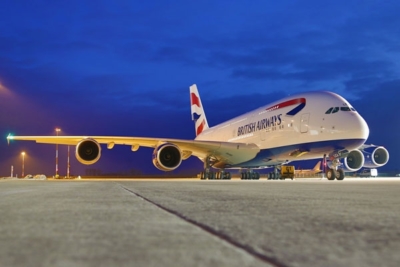
Can you really spend £500 on seat reservation fees for a couple?
Unfortunately, yes.
Rhys wrote this article in May 2019 about ‘fee creep’ at British Airways.
We used an example there of Heathrow to New York, where seat selection would cost up to £364 return for a couple. However, for the US West Coast, you will pay £139 per person each-way for the upper deck of a Boeing 747 – a total of £556 return for a couple. Bargain.
There were two issues at stake: is it made clear that your reservation is non-refundable? and is this ‘fair’?
Is it made clear that seat reservations are non-refundable?
Let’s look at the first issue. When you go into ba.com to select seats, this is what you see (click to enlarge):
The terms and conditions are not shown, but require you to click a hyperlink. Not ideal, but probably acceptable. But when you click the hyperlink, you get this:
This is meant to be a summary of the key terms and conditions. At no point does it say that seat reservations are non refundable.
If you click on ‘More terms and conditions’ it DOES bring up a lengthy pop up box of rules. If you scroll almost to the bottom, it DOES say that seat fees are non-refundable if you choose to cancel your flight. I would argue, however, that this is too many clicks from the booking screen to be watertight.
Regardless of the T&Cs, is this ‘fair’?
You might say ‘it doesn’t matter if it’s fair’.
Except, under UK contract law, it does.
There are lots of pieces of regulation which could come into play here such as the Consumer Rights Act 2015, the Unfair Contract Terms Act 1977, the Unfair Terms in Consumer Contracts Regulations 1999, the Sale of Goods Act 1979 and the Supply of Goods and Services Act 1982.
Here is a very concise summary from the Government’s own website:
Businesses can keep your deposit or advance payments, or ask you to pay a cancellation charge, only in certain circumstances:
If you cancel the contract, the business is generally only entitled to keep or receive an amount sufficient to cover their actual losses that directly result from your cancellation (eg costs already incurred or loss of profit).
Businesses must take reasonable steps to reduce their losses (eg by re-selling the goods or services).
Non-refundable deposits should only be a small percentage of the total price.
Cancellation charges must be a genuine estimate of the business’ direct loss.
A good base line is that a consumer contract can only be imposed if it is ‘fair’.
It is very, very difficult to see how retaining a payment of £500+ for seat selection is ‘fair’ when the airline was happy to cancel the underlying seats without penalty.
Seat selection fees also appear ‘unfair’ in terms of the ‘power’ given to each party. British Airways, according to the small print, is free to throw you out of your allocated seats for any reason it wants:
“A paid seat request cannot be guaranteed, as it may need to be changed for operational, safety or security reasons, even after boarding the aircraft.”
“Paid seating will not be refunded if you cancel your flight, are involuntarily upgraded or are not suitable to sit in the seat type you have selected.”
“In relation to BA marketed and operated flights, if, in accordance with your fare rules, you choose to move to a different flight, you will be entitled to choose an equivalent seat on your new flight. However if an equivalent seat is not available the difference paid will be forfeited and will not be refunded. In relation to other carrier marketed flights, if you choose to move to a different flight, you will not be entitled to choose an equivalent seat on the new flight and you will not be entitled to a refund.”
Note that, if BA upgrades you, you don’t get a seat refund. It is difficult to imagine a court agreeing with that, especially if you paid for seats purely in order to be together but – due to the upgrade – you were separated.
Oddly, if the whole transaction was non-refundable (the seat and the seat reservation), you may be able to make a case for retaining the seat fee. You bought a product in advance at a cheaper price by buying it in advance rather than at short notice, with the trade off that the transaction was non-refundable. This is seen as ‘fair’ under UK law. The seat fee could be seen as part of the overall cost.
In the case of an Avios redemption – or a fully flexible cash ticket – it is a different story. The airline is willing to refund the flight. It is therefore virtually impossible, in my mind, to put together a ‘reasonable’ justification for keeping the seat selection fees.
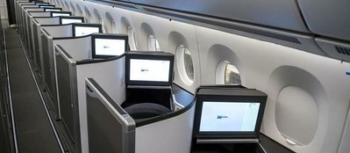
A reader decided to test this at arbitration
I said last November that I would be keen to hear from any HFP readers who wanted to take British Airways to CEDR arbitration (here is our guide on how to do it) or, failing that, to MCOL / Small Claims (here is our guide on how to do that) over seat selection fees.
A reader (not Andrew who we quoted above) took me up on the offer.
He lost.
Here is the arbitration judgement in full:
Agreed facts
• The passenger and one other were booked on the Flights.
• The passenger cancelled his reservation for the Flights.
Issues in dispute
• The passenger claims £408.00, as a refund of the seat selection fee he paid to the airline.
• The airline denies liability for the refund sought.
Decision making principles
• In order to succeed in a claim against the airline, the passenger must prove on a balance of probabilities that they are owed compensation under Regulation (EC) No 261/2004 of the European Parliament and of the Council of 11 February 2004 (“Regulation 261”).
• I have carefully considered all of the issues raised and the documents provided. Both the passenger and the airline should be reassured that if I have not referred to a particular issue or document, this does not mean that I have not considered it in reaching my decision.
Reasons for decision
1. The passenger claims £408.00 as a “Refund of Seat Selection Fee from fully refundable ticket”. The airline, on the other hand, states the passenger is not entitled to a refund of the seating charges he paid, as, in accordance with its terms and conditions, “pre-paid seating will not be refunded if the Passenger chooses to cancel their booking”.
2. I am mindful that pursuant to the airline’s Terms and Conditions for paid seating, passengers “will not receive a refund for paid seating if [they] cancel [their] flight”.
3. The passenger cites the Competition and Markets Authority’s Guidance on Cancelling Goods or Services. I am not convinced the charge the passenger paid for seating can be considered a “deposit” or an “advance payment” for any goods or services. I also do not deem that the “seat selection fee” paid can be considered a “cancellation charge”.
4. Rule 2.1. of the Aviation Adjudication Scheme Rules stipulates the types of disputes that I, as an adjudicator under the Aviation Adjudication Scheme can deal with. The passenger’s dispute does not relate to “[d]enied boarding, delay, or cancellation”, “[d]estruction, damage, loss, or delayed transportation of baggage”, “[d]estruction, damage, or loss of items worn or carried by the customer” or “[p]roblems faced by disabled passengers or passengers with reduced mobility”. In that sense, the passenger’s claim can only fall within Rule 2.1.5, namely “disputes arising where the customer alleges that the subscribing company has not acted fairly; that is, where the subscribing company has failed to provide the service as agreed under the contract for aviation services”. In that sense, I am only able to determine if the airline broke a term of its contract with the passenger or if it failed in its duty of care owed to the passenger when providing the contracted services. Yet, it falls outside of my remit as an adjudicator to establish whether the contract between the parties is balanced, fair or reasonable or to rule whether it is legal in accordance with the applicable regulations in the United Kingdom.
5. I find that the passenger was clearly referred to the airline’s full terms and conditions relating to paid seating and that a link to those terms and conditions was displayed at the time of booking such paid seating. I consider that those terms and conditions include a clear and unequivocal statement that passengers “will not receive a refund for paid seating if [they] cancel [their] flight”.
6. Subsequently, given that the passenger cancelled his tickets for the Flights, I consider the airline correctly denied liability for a refund of the paid seating charge the passenger incurred. In that sense and in view of the clear provision in the airline’s terms and conditions stating passengers “will not receive a refund for paid seating if [they] cancel [their] flight”, I find there is no basis on which I would be able to direct the airline to refund the passenger £408.00, representing the seat selection fee the passenger paid to the airline.
7. I anticipate the passenger may be disappointed by my decision but hopefully he understands my reasoning. Whilst I recognise and sympathise with the situation the passenger found himself in, the airline’s terms and conditions relating to paid seating clearly and unambiguously state passengers “will not receive a refund for paid seating if [they] cancel [their] flight”. Therefore, I was only able to conclude the airline acted in accordance with those terms and conditions by not offering a refund to the passenger for the said seat selection fees which the passenger paid. Whist I recognise the passenger deems this provision unfair, I am unable to make a determination as to whether the same is unfair, binding, acceptable, balanced or not to the detriment of the consumer. Should the passenger be unsatisfied with my ruling, he is free to reject the decision and and to negotiate a settlement with the airline or to pursue the matter elsewhere should he wish to do so, including to dispute the validity of the abovementioned provision (or the airline’s terms and conditions as a whole) before a competent body or court.
Decision
• The passenger’s claim does not succeed.
What next?
It is not hugely surprising that the claim failed, unfortunately.
It is not disputed by me, the passenger or the arbitrator that the BA terms and conditions allow it to pocket your seat selection fees if you cancel your flight. This appears to be the only point that the CEDR arbitrator has considered.
By his own admission, the arbitrator is not allowed to consider whether these terms are ‘fair’ under UK contract law. Only a court can decide this.
However, I would clearly take issue with the arbitrator’s view that BA makes its cancellation policy ‘clear’ and ‘unambigous’. It is clear from the screenshots I show above that this is absolutely NOT the case. I doubt the abitrator actually did anything as obvious as try to make a BA seat booking himself.
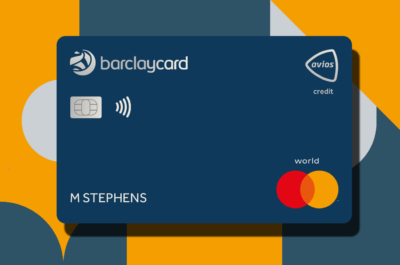
How to earn Avios from UK credit cards (April 2024)
As a reminder, there are various ways of earning Avios points from UK credit cards. Many cards also have generous sign-up bonuses!
In February 2022, Barclaycard launched two exciting new Barclaycard Avios Mastercard cards with a bonus of up to 25,000 Avios. You can apply here.
You qualify for the bonus on these cards even if you have a British Airways American Express card:

Barclaycard Avios Plus Mastercard
Get 25,000 Avios for signing up and an upgrade voucher at £10,000 Read our full review

Barclaycard Avios Mastercard
5,000 Avios for signing up and an upgrade voucher at £20,000 Read our full review
There are two official British Airways American Express cards with attractive sign-up bonuses:

British Airways American Express Premium Plus
25,000 Avios and the famous annual 2-4-1 voucher Read our full review
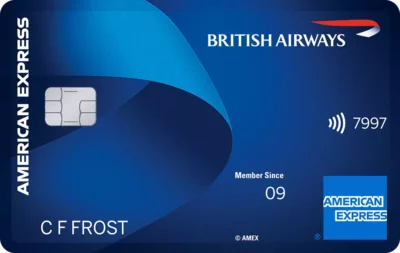
British Airways American Express
5,000 Avios for signing up and an Economy 2-4-1 voucher for spending £15,000 Read our full review
You can also get generous sign-up bonuses by applying for American Express cards which earn Membership Rewards points. These points convert at 1:1 into Avios.

American Express Preferred Rewards Gold
Your best beginner’s card – 20,000 points, FREE for a year & four airport lounge passes Read our full review

The Platinum Card from American Express
40,000 bonus points and a huge range of valuable benefits – for a fee Read our full review
Run your own business?
We recommend Capital on Tap for limited companies. You earn 1 Avios per £1 which is impressive for a Visa card, along with a sign-up bonus worth 10,500 Avios.
SPECIAL OFFER: Until 12th May 2024, the Capital on Tap Business Rewards Visa card is offering a bonus of 30,000 points, convertible into 30,000 Avios. You must have a Limited Company to apply. Click here to learn more and click here to apply.

Capital on Tap Business Rewards Visa
Huge 30,000 points bonus until 12th May 2024 Read our full review
You should also consider the British Airways Accelerating Business credit card. This is open to sole traders as well as limited companies and has a 30,000 Avios sign-up bonus.
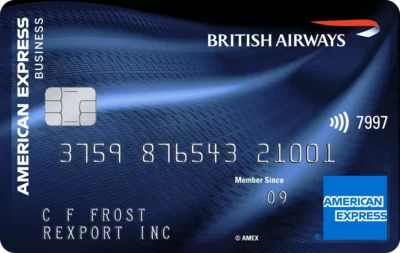
British Airways Accelerating Business American Express
30,000 Avios sign-up bonus – plus annual bonuses of up to 30,000 Avios Read our full review
There are also generous bonuses on the two American Express Business cards, with the points converting at 1:1 into Avios. These cards are open to sole traders as well as limited companies.

American Express Business Platinum
40,000 points sign-up bonus and an annual £200 Amex Travel credit Read our full review

American Express Business Gold
20,000 points sign-up bonus and FREE for a year Read our full review
Click here to read our detailed summary of all UK credit cards which earn Avios. This includes both personal and small business cards.



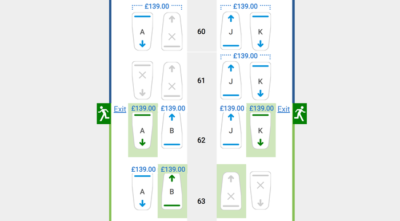

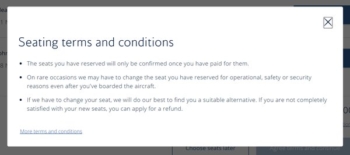





Comments (141)